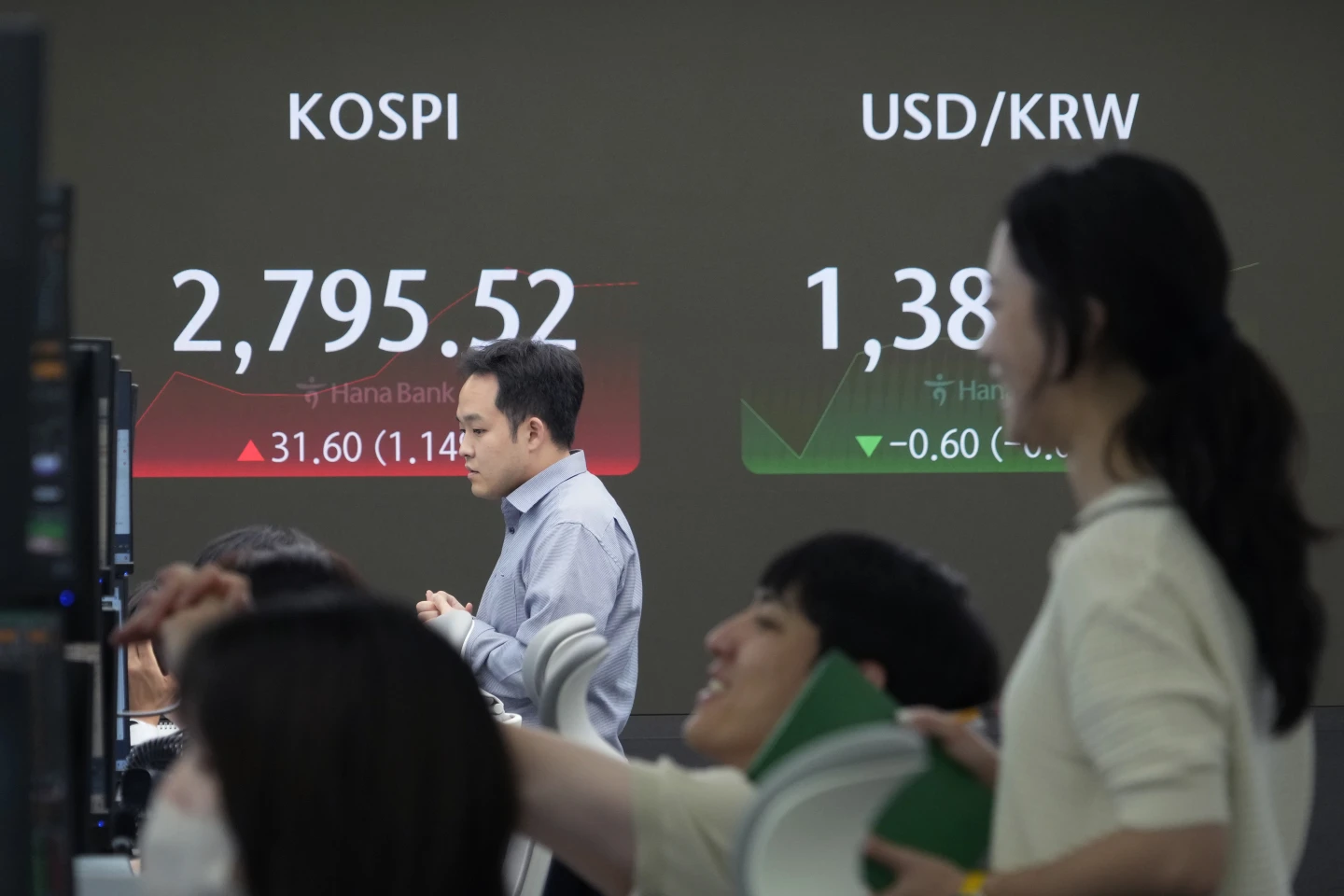Asian stocks showed a mix of performances on Wednesday following new record highs in U.S. markets, indicating the American economy might be slowing down without entering a recession.
U.S. futures had varied movements and oil prices remained stable.
In Tokyo, the Nikkei 225 index rose by 0.2% to 38,575.54 after Japan’s May trade data revealed a 13.5% increase in exports and a 9.5% rise in imports compared to a year ago, driven by higher prices and a weaker yen against the U.S. dollar.
Minutes from the Bank of Japan’s recent policy meeting disclosed a discussion among policymakers about whether the yen’s depreciation could further raise inflation. Governor Kazuo Ueda hinted at a potential increase in the benchmark interest rate in the coming months, depending on economic indicators.
According to IG Asia, the Nikkei’s movements reflected uncertainty, with the index trading within a broad consolidation phase so far.

NYSE (Via Kane Markram/Shutterstock)
In Hong Kong, the Hang Seng index climbed 2% to 18,264.51, while in Shanghai, the Shanghai Composite index dropped 0.3% to 3,020.03 after the head of China’s securities regulator announced enhanced oversight of financial activities at a Shanghai financial forum to mitigate potential risks.
In Sydney, the S&P/ASX 200 index slipped by 0.2% to 7,764.30. South Korea’s Kospi index surged by 1% to 2,792.14.
Elsewhere, Taiwan’s Taiex increased by 1.8%, whereas Bangkok’s SET index fell slightly by 0.1%.
On Tuesday, the S&P 500 index rose by 0.3% to 5,487.03, marking its 31st all-time high this year. The Nasdaq composite inched up by less than 0.1% to 17,862.23, and the Dow Jones Industrial Average gained 0.2% to 38,834.86.

























